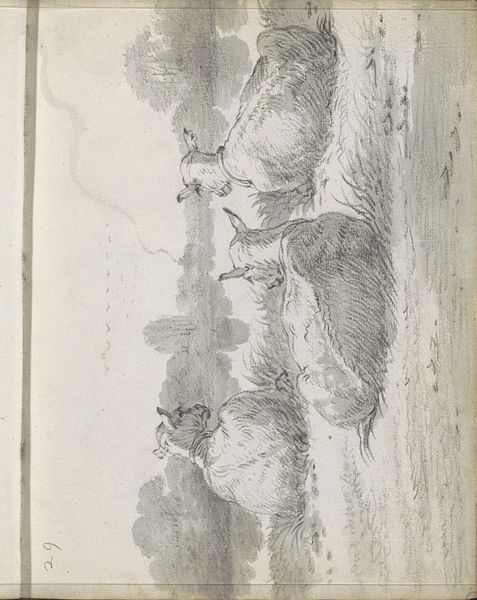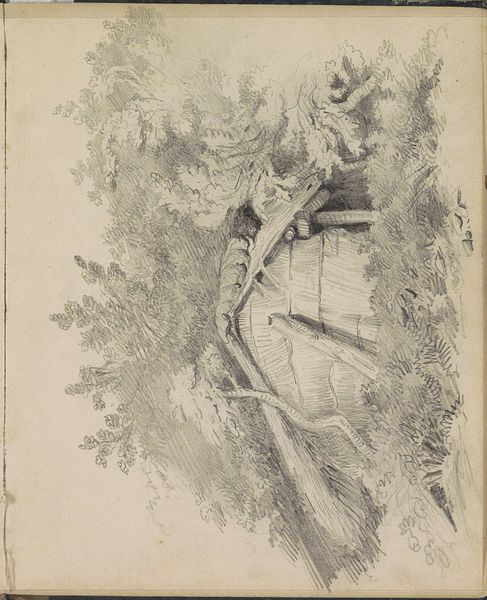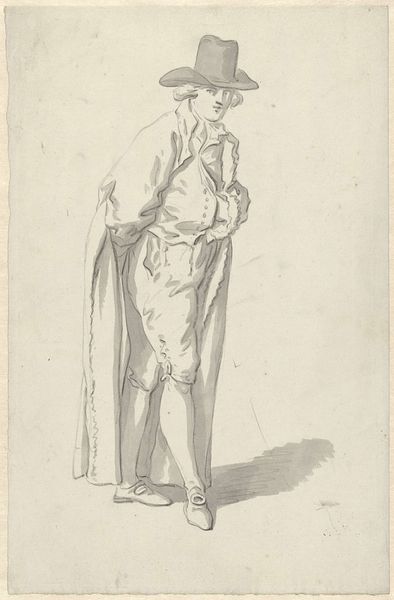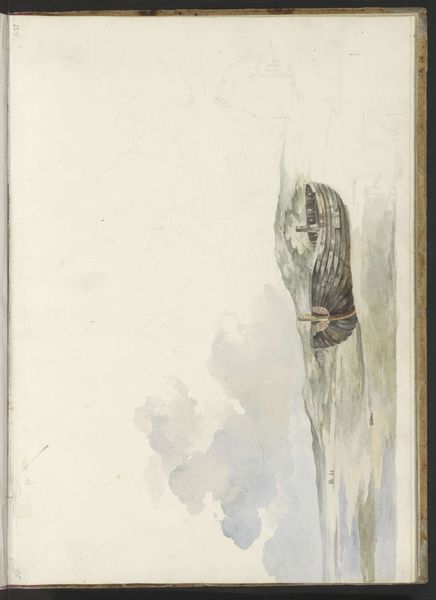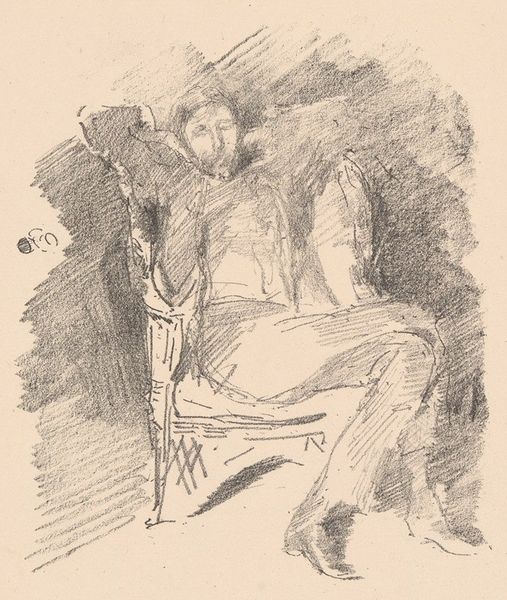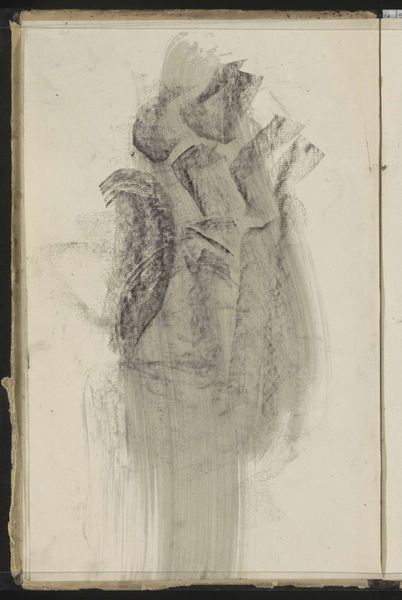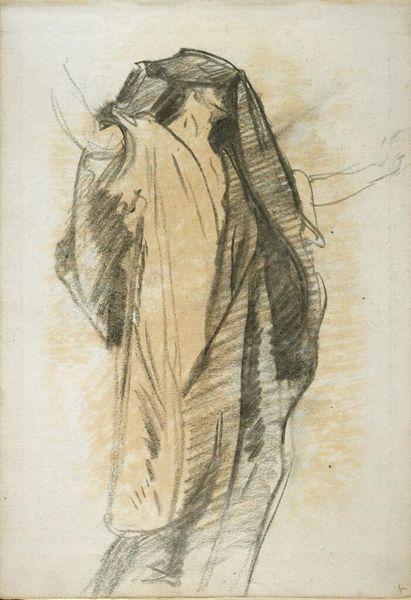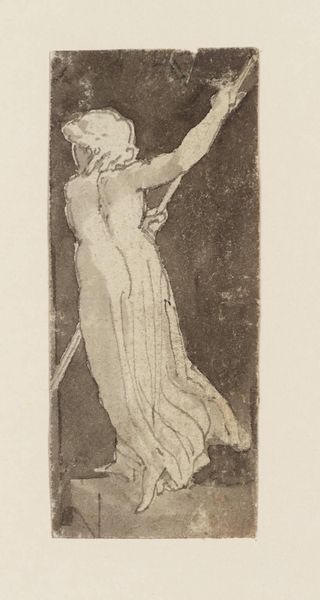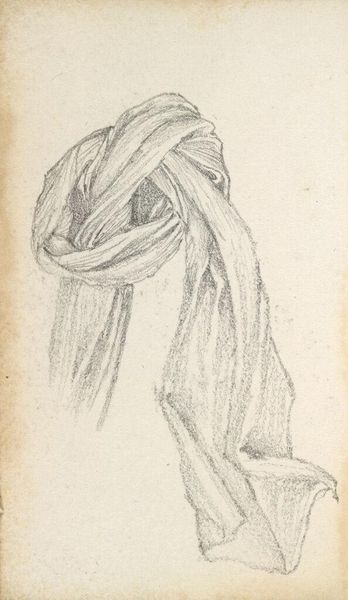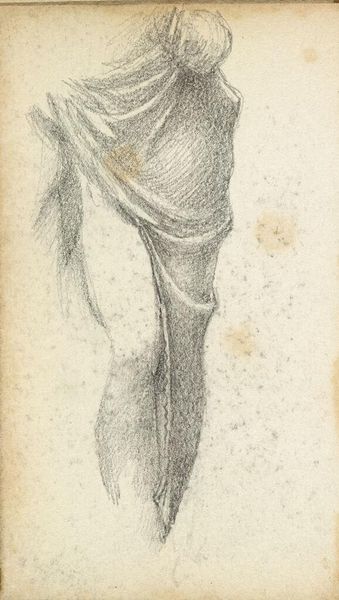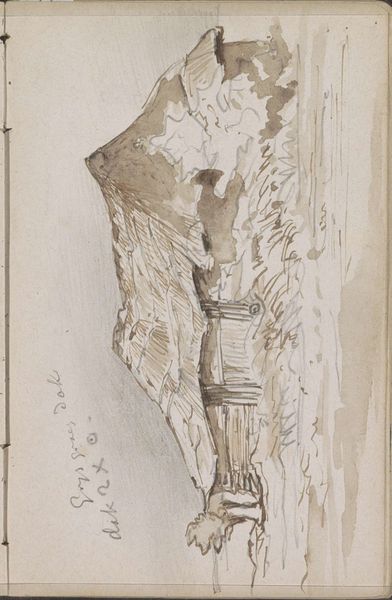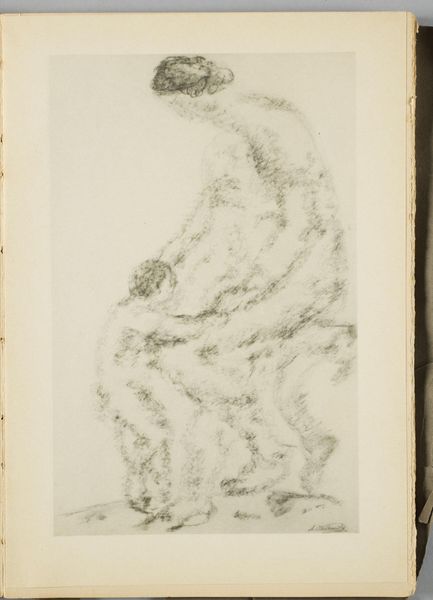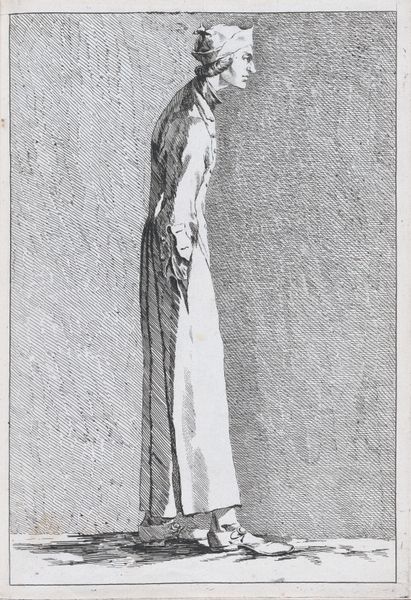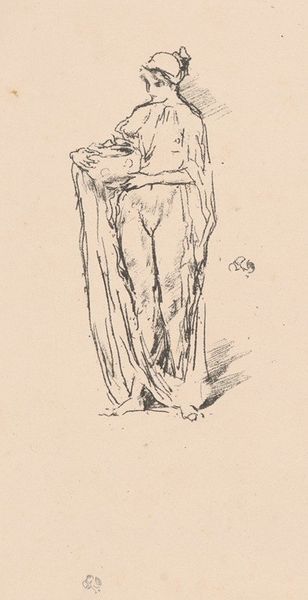
drawing, pencil
#
drawing
#
pencil sketch
#
landscape
#
romanticism
#
pencil
#
realism
Copyright: Rijks Museum: Open Domain
Editor: This pencil drawing, "Omgevallen boomstam" – Fallen Tree Trunk – is by Barend Hendrik Thier and dates from around 1780-1800. It has such a melancholic, almost ominous feel to it. How do you interpret this work? Curator: Well, viewed historically, it appears Thier is working within a Romantic tradition. He's focused on nature, but not just nature as pretty scenery. Instead, we have a *fallen* tree. Decay, the ephemerality of life... it's a sharp contrast to the prevailing Enlightenment ideals of order and progress of that time. Does this challenge the traditional public role of art at that time, do you think? Editor: It absolutely feels like it does. The imperfection and vulnerability seem central to its message, definitely at odds with idealized landscapes. Curator: Precisely! It prompts us to think about the role of art in reflecting societal shifts. The Romantics often used nature to critique industrialization and urbanization, presenting it as a space for emotional and spiritual solace, an alternative to the burgeoning, socially tumultuous cities. Editor: So, seeing the drawing at that time would’ve been almost a form of quiet protest, finding peace in what was being lost? Curator: Perhaps. Or maybe simply reflecting a growing awareness of the costs of progress. It speaks to the changing socio-political climate and the evolving role of the artist in society. Art serving as a barometer of cultural anxieties. Editor: That’s a helpful perspective, seeing the artwork as both reflecting anxieties and offering alternatives. Thank you! Curator: It was my pleasure.
Comments
No comments
Be the first to comment and join the conversation on the ultimate creative platform.
